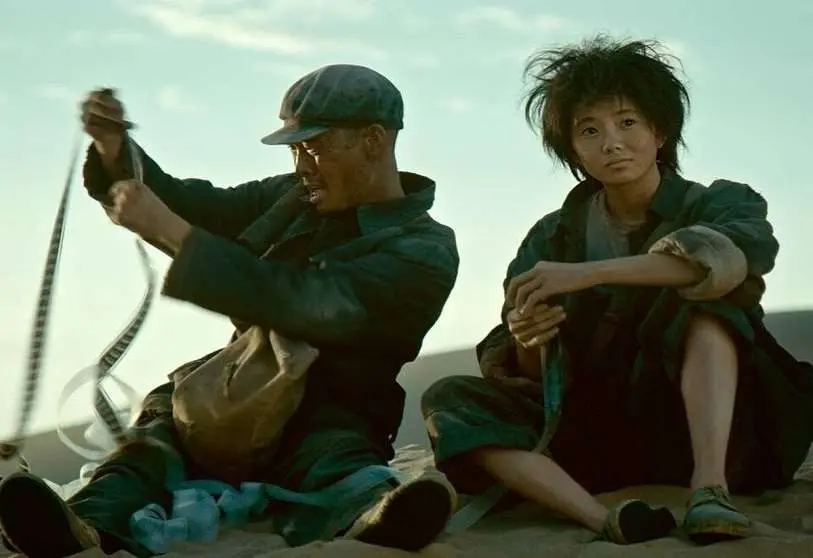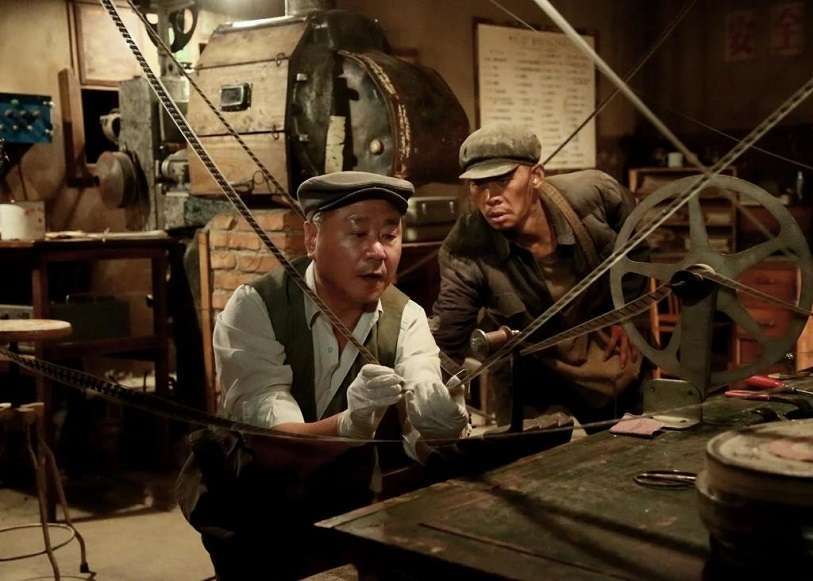"One Second" in China's history

What is a second worth in the history of a thousand-year-old country? Does a grain of sand have any weight in the immensity of the desert? Zhang Yimou, the most renowned of China's post-Maoist filmmakers (the so-called Fifth Generation), places the viewer of his latest film - which opened the San Sebastian Festival and is now being released in cinemas - before these dilemmas, telling the story of a man who was repressed during the Cultural Revolution and who tirelessly seeks to see his missing daughter in the images of a film newsreel. The consolation of finding the lost life in the memory of celluloid.
The cinematographic mastery of the director of works such as 'Red Sorghum' (1987) and 'Chrysanthemum Seed' (1990) comes to the fore in sequences that are related to the history of cinema, such as the dramatic chase along a desert road to get hold of a stolen roll of film. We are on the same path as a classic Buster Keaton or the best screwball comedies. We also find echoes of Cinema Paradise in the recreation of a dilapidated cinema in the middle of rural China and the recovery of a dirty and almost lost film in the tug of war between the pursuers of the secret that this piece of celluloid holds. Undoubtedly a declaration of love to cinema, to its medium, but without remaining a mere artifice, since the clear purpose of the film is a vindication of those who fell in one of the harshest episodes of Maoism.
In a model of history or script reminiscent of the metaphors in which the films of Saura, Erice and Querejeta of late Francoist Spain took refuge, Zhang Yimou objectifies the need to preserve the memory of what was for the Chinese people the stormy period of the Cultural Revolution in the recovery of a few stills. The clock of history is ticking so fast that it has to bury the past. But when history is written in small letters and takes into account the most intimate feelings, such as that of his wounded paternal-filial relationship, every second counts. Not even the infinite sand of the great desert, this story tells us, can bury what happened in the past.

Zhang Yimou works a dual plot - the search for the filmic image of the lost daughter and the father's encounter with an orphan girl - to flesh out the story of absence, pain and repression that makes the film both a sentimental and historical tour de force.
The director, renowned for his exuberant staging and high-level cinematography in the productions that brought him success, is here more restrained, less bombastic, with the exception of the desert scenes, which come to play a metaphorical role of the immensity of the country against its tiny inhabitants, who in this case will not cease in their vindication beyond the re-education camps to which they were subjected. The deep wound of the misnamed 'Cultural Revolution' is shown on a microscopic level, when in the rescued film we see the girl sent to the re-education camp to carry sacks of flour or potatoes, stories that I myself encountered, with only whispered first-person accounts, on the roads of China during my journey in the mid-seventies. The intelligentsia, the university students, were sent to the camp under the premise of avoiding gentrification, when in reality they were purging those who should have been in power in the face of the inability of the Maoist leaders of the time, whose economic failures caused the deaths of millions of China's inhabitants, through famine and repression.

Sometimes ironic, always sentimental, Zhang Yimou's latest film opens a door of hope for a Chinese cinema that needs to come to terms with its immediate history. Not exempt from a few cuts to reach the public, the film has finally been shown and served as the opening film at this year's San Sebastian Festival. Yimou, whose cinema has moved from historical essences to great epics, has taken risks to the limit with this script, which he pushed forward despite the limitations and changes imposed.
The great skyscrapers and technological advances can hardly eclipse the high price paid by other generations of Chinese citizens to reach this stage of growth in the face of the hardships of the sixties, which are well portrayed in the film. The exultant façade of the new China seems to want to crush a not-so-distant past in which hunger and misery, repression and pain to the point of family separation and force were all too commonplace. A second, a few frames, are the reality and the metaphor of a story that seems to begin a path of catharsis. The collective effort to restore the lost film or the raising of the white sheet as a projection screen amidst the jubilation of a people devoted to any entertainment in the midst of misery are the high points of this film, which will not be merely anecdotal in the history of the new Chinese cinema.










